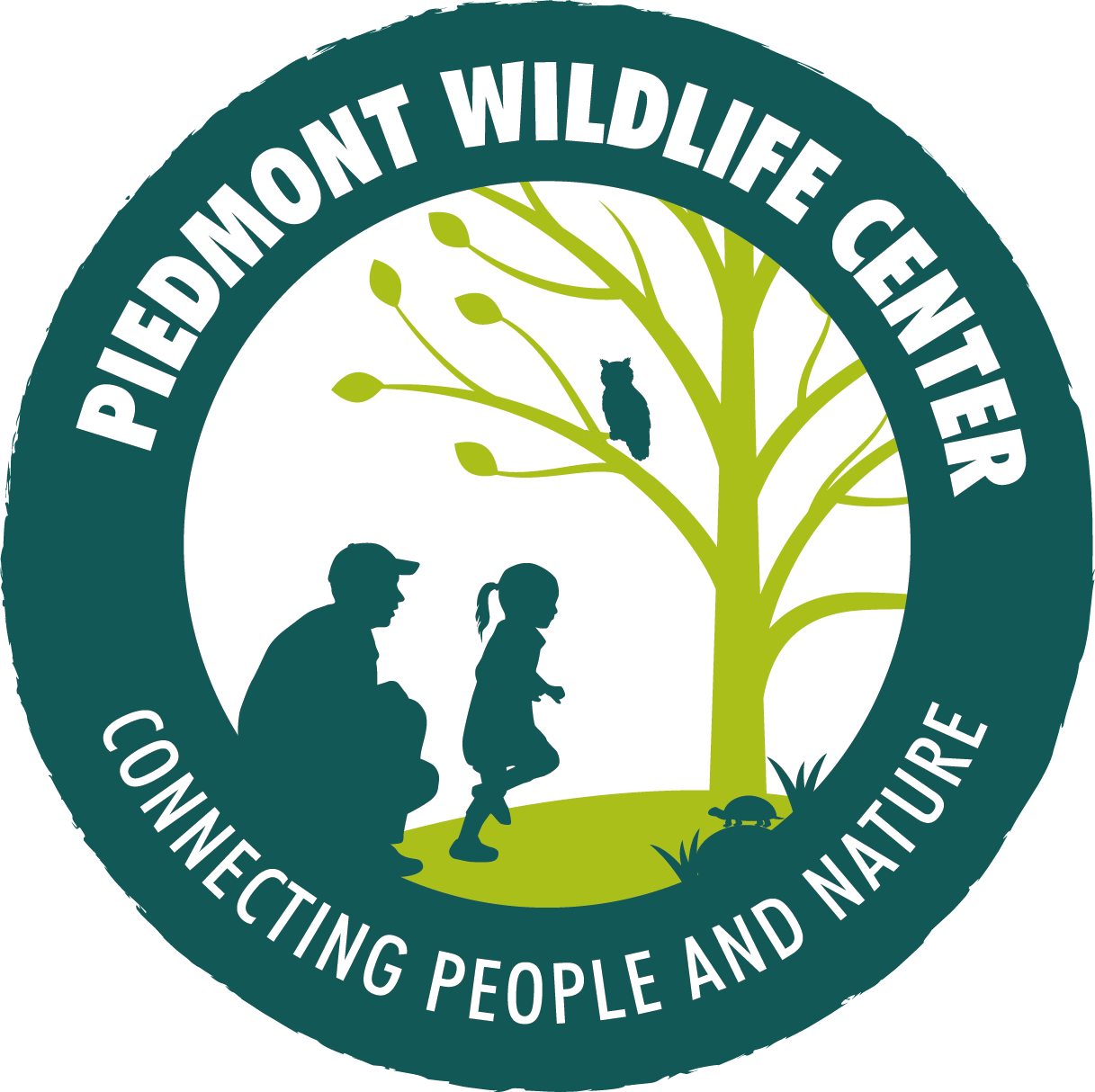Running a box turtle population study, managing three conservation interns, and ensuring the health and safety of twenty-three Ambassador Animals: all in a day's work for Kaitlin Saxton, PWC's new Research & Husbandry Coordinator!
Kaitlin grew up in South Carolina and moved to NC for grad school, where she earned her Master's in Environmental Management from Duke University. Her research interests include wildlife surveys and population monitoring. In her spare time, Kaitlin also enjoys hiking, camping, cooking, and caring for her pet rats and tarantula.
"Three words to describe Kaitlin are innovative, tenacious, and determined," says Noelle Dalhouse, Conservation Coordinator. Kaitlin has only been at PWC since April, but she's already become an invaluable part of our team. From getting our summer conservation interns involved in Caterpillars Count to crafting a custom feeding station to keep ants out of Otus's food dish, Kaitlin has hit the ground running with creative ideas to expand and improve PWC's conservation work!
Noelle says it best: "We're so excited to have Kaitlin on our team! In the short time that she's been here, we've already seen her creative and innovative ideas and can't wait to see how she continues to improve the Conservation Team."
Welcome aboard, Kaitlin! We're so happy you're here.
5 ways to help box turtles this World Turtle Day
May 23rd is World Turtle Day! We're all about eastern box turtles here at Piedmont Wildlife Center. If you are too, here are five ways you can help this declining species:
#1: Donate to box turtle conservation
Support our box turtle conservation and research efforts by donating at GlobalGiving. Your recurring or one-time donation helps us keep our radio telemetry equipment in tip-top shape, get more people involved in our Triangle Turtle Trekkers citizen science project, and share our research findings with other members of the Box Turtle Connection and beyond.
#2: Don’t purchase a box turtle as a pet
Make a commitment not to buy box turtles as pets or remove them from the wild. The pet trade is a major contributor to eastern box turtles’ status as a species in decline. Not only is it illegal to take box turtles from the wild in NC, but it causes stress and also removes individual turtles from the breeding pool - which means there will be fewer wild turtles in the future.
#3: Become a citizen scientist
Help monitor box turtle populations in NC as a citizen scientist through PWC’s Triangle Turtle Trekkers. Spot a box turtle in your yard, favorite park, or place of business? Snap a photo and upload your sighting to turtletrekkers.org!
#4: Help turtles cross the street safely
If you see a box turtle trying to cross the road (and it's safe to do so), help them across in the direction they're headed. Please don’t put them back on the side of the road they came from, or relocate them to another location. Box turtles have a strong homing instinct and will turn right back around! Don’t worry if there are no ponds, lakes, or streams nearby - box turtles are terrestrial (land-dwelling) turtles and don’t live in water.
#5: Build wildlife habitat in your yard
If you have a yard, consider turning part of it into wildlife habitat for box turtles and other native animals! Make a plan to grow native plants and establish brush piles to encourage box turtles to live in your garden.
"Shellfies" Put to the Test!
This probably goes without saying, but...it's been a year. One for the books. At Piedmont Wildlife Center, some things have changed: we've gone virtual for our Animal Encounter programs, and camps continue to operate under COVID-19 protocols. Some things have remained the same: our box turtle study is going stronger than ever, and the turtles in the park are blissfully unaware of any sort of chaos taking place in the world.




